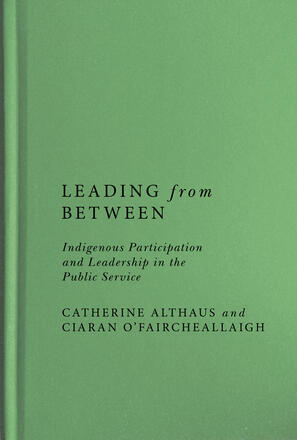
Leading from Between
Indigenous Participation and Leadership in the Public Service
How the voices, personal experiences, and understandings of Indigenous public servants make a difference in Canada and Australia.
Description
Since the 1970s governments in Canada and Australia have introduced policies designed to recruit Indigenous people into public services. Today, there are thousands of Indigenous public servants in these countries, and hundreds in senior roles. Their presence raises numerous questions: How do Indigenous people experience public-sector employment? What perspectives do they bring to it? And how does Indigenous leadership enhance public policy making? A comparative study of Indigenous public servants in British Columbia and Queensland, Leading from Between addresses critical concerns about leadership, difference, and public service. Centring the voices, personal experiences, and understandings of Indigenous public servants, this book uses their stories and testimony to explore how Indigenous participation and leadership change the way policies are made. Articulating a new understanding of leadership and what it could mean in contemporary public service, Catherine Althaus and Ciaran O'Faircheallaigh challenge the public service sector to work towards a more personalized and responsive bureaucracy. At a time when Canada and Australia seek to advance reconciliation and self-determination agendas, Leading from Between shows how public servants who straddle the worlds of Western bureaucracy and Indigenous communities are key to helping governments meet the opportunities and challenges of growing diversity.
Reviews
"Leading from Between offers numerous insights of great importance to those engaged in Indigenous studies, public administration, and policy studies in Australia and Canada. It will stimulate a new line of inquiry into the promise and the challenges of reconciliation. The authors lay down an evidence-based challenge to public services to fundamentally rethink how to advance and support Indigenous participation and leadership." Michael J. Prince, University of Victoria